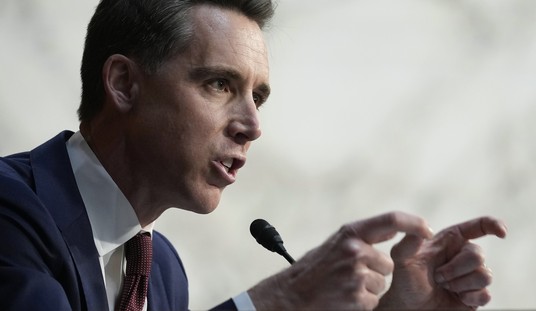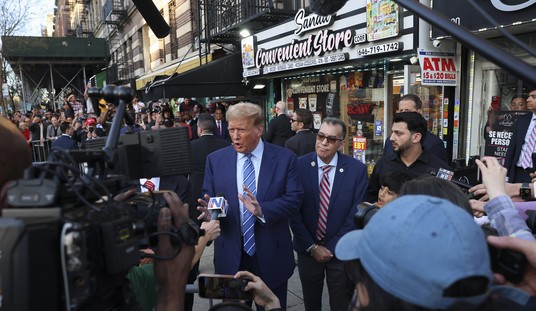The Export-Import Bank charter will expire in a few days, on June 30, unless Congress acts to reauthorize it. The Export-Import Bank was created more than 80 years ago by President Franklin D. Roosevelt to help foreign customers buy goods from the United States.
Some companies benefit from the Export-Import Bank and they are the first ones to defend its reauthorization. But let’s be clear: Companies benefit from Export-Import Bank loans at the expense of taxpayers and other businesses. Taxpayers—not the companies themselves—assume the risk of a foreign loan, made through a private bank (like Goldman Sachs), to purchase a company’s product. So while some companies benefit from selling more products to more foreign customers, the taxpayers are exposed to the risk if the loan goes bad.
As if this wasn’t bad enough, the Export-Import Bank artificially lowers costs for companies, giving them an advantage over their competitors and raising competition costs for companies that aren’t lucky enough to have subsidized support from the Export-Import Bank. Yes, the Export-Import Bank is a good deal for a few businesses, but at the expense of almost everyone else.
Congress should have closed the Export-Import Bank last year, but they temporarily reauthorized the charter until June 30 as part of a deal to avoid a government shutdown. Now that the pressure of a government shutdown has passed, Congress should do the right thing by letting the Export-Import Bank finally expire. Powerful supporters of the Export-Import Bank may try to make it difficult to oppose the reauthorization, possibly by adding it to another important bi-partisan piece legislation such as the transportation reauthorization or national defense bill. In any event, Congress can’t seem to approve the Export-Import Bank on its own merits, which underscores at least three reasons to close the Export-Import Bank:
Recommended
1. The Export-Import Bank duplicates private venture capital activities.
The “Yellow Pages Test” determines whether a government agency is necessary in the first place. If the same service is advertised in the Yellow Pages, then why do we need a duplicative government agency that offers the same service? The Export-Import Bank fails the Yellow Pages Test. The Export-Import Bank not only duplicates services, it has an unfair advantage because it can offer a better credit deal than what is available in the marketplace. Their charter says the Export-Import Bank “should supplement and encourage, and not compete with, private capital.” But in reality, they displace a commercial lending industry that would exist if not for the Export-Import Bank. Instead of a commercial bank that appropriately allocates and prices risk, the Export-Import Bank can artificially transfer risk to the taxpayers and lower the costs of their lending. This duplicates private venture activities and distorts the lending market. The CBO says the Export-Import Bank will add $2 billion to the deficit over the next decade. A commercial bank wouldn’t stay in business very long under those circumstances! Worse yet, it seems to be a growing trend in the financial services industry—student loans, home mortgages, and small business loans—where the federal government is creeping more and more into the private lending market.
2. The Export-Import Bank is corporate welfare.
By offering credit that is less expensive than what is available in the marketplace, the Export-Import Bank artificially inflates businesses profits. For instance, the Export-Import Bank provided $10 million in loan guarantees to the infamous Solyndra energy company before it went bankrupt. When Barack Obama was running for President in 2008, he said the Export-Import Bank had become “little more than a fund for corporate welfare.” Back then, the President was right.
According to the Manhattan Institute, about 1 percent of an Export-Import Bank loan is subsidized by the American taxpayer. That type of corporate welfare doesn’t seem so bad if we were helping an American small business break into a foreign market. Not less than 20 percent of the Export-Import Bank’s assistance is supposed to go to small businesses for just that reason. But Sen. Elizabeth Warren (D-MA) was quick to point out during a June 2 hearing that the Export-Import Bank has repeatedly fallen short of that 20 percent requirement.
In fact, more than three-quarters of Export-Import Bank assistance goes to just a handful of big businesses, like General Electric and Caterpillar. The biggest of all is Boeing, which enjoys a whopping 40 percent of the entire Export-Import Bank’s assistance! Does Boeing really need corporate welfare to sell airplanes? Contrast 40 percent for Boeing against the 20 percent or less for all American small businesses combined, and I challenge you to think of a better definition of crony capitalism. Moreover, Rep. Jeb Hensarling (R-TX) recently drew attention to the corruption and fraud that usually accompanies such circumstances: There have been 85 indictments since 2009 at the Export-Import Bank and there are 41 current open investigations.
3. The Export-Import Bank is perverse foreign aid.
The Export-Import Bank is nothing more or less than financial aid to help foreign customers buy products from American businesses. The Export-Import Bank assumes the credit risk for foreign customers that cannot (or will not) meet the market-driven demands of commercial banks. In some foreign countries, credit risks are much higher because of weak private property laws and corrupt economic policies. The Export-Import Bank aids foreign governments that should be working to create better investment environments to attract their own investment capital. Our policy should incentivize other countries to strengthen their own property rights and economic policies, rather than relying on the Export-Import Bank to avoid those reforms.
These are just three reasons as to why I voted against the reauthorization of the Export-Import Bank while a Member of the 112th Congress. My recommendation is for Congress to do nothing—especially not leverage our National Defense Authorization Act for passage—and allow the sun to set on the ill-conceived notion of government venture capitalism we call the Export-Import Bank, a violation of free enterprise, opportunity economics.

























Join the conversation as a VIP Member